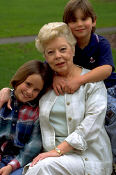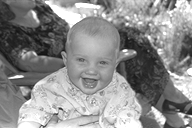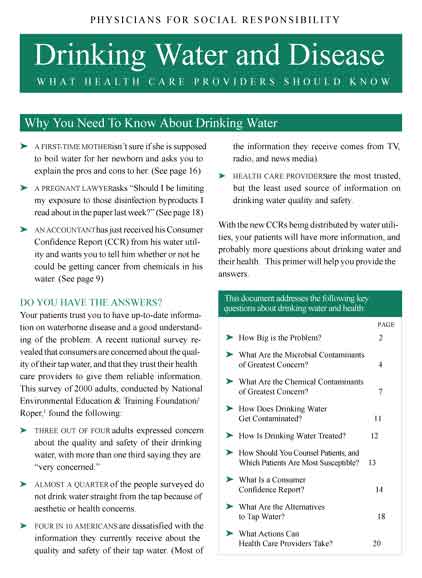 |
 | 
GRANDPARENTS AS CAREGIVERS A GROWING TREND
By Shani J. Bell
Akron Beacon Journal
Those who don't know her may want to call her Superwoman. More and more, kids these days just call her Grandma. According to the U.S. Census in 1994, 3.7 million children are being raised by their grandparents or other relatives - up 40 percent since the mid-80s. Of the 24 percent being raised by grandparents, more than half - 13 percent - were black.
Curious about the effect on black families in particular, researchers Antoinette Rodgers and Rosa Jones, both of the Florida International University School of Social Work, set out to study how and why grandparents and grandchildren came together.
``I was raised by a grandparent for part of my life,'' Dr. Rodgers says. ``Since Dr. Jones and I are both African-American, we were both curious as to the reasons why so many African-American grandparents end up being the primary care-givers of their grandchildren.''
Drs. Rodgers and Jones conducted interviews with 19 black grandmothers, ranging in age from 47 to 74. Forty-two percent, they learned in their admittedly limited study, were in their situation because of drug abuse by the child's mother. Death of the parents or immaturity of the father and mother were the second and third most common reasons a child was turned over to grandparents.
Sarah Anthony feels blessed that her 6-year-old grandson, Darwin, has become part of her life. While Darwin's mother, Monica, tries to finish school and get on her feet, Mrs. Anthony and Warren, her husband, have been raising Darwin.
``He's just like one of our own,'' says Anthony. ``I would be idle if I didn't have Darwin. He's a part of my life, and what I do, wherever I go, he goes.''
Anthony says she began preparing for a new baby when she found out that Monica, then 17, was pregnant, so the adjustment wouldn't be such a shock. ``I do wish that we could get more help with the medical bills. We have to pay out of our pocket when he goes to the doctor.''
Anthony, 52, observes that grandmothers like her are growing in number. ``Most of the men and women that I went to school with are now in the same situation,'' she says. ``When you raise a child from birth, you feel like it's your own. Darwin fulfills my life. .? I wouldn't trade nothing else for him.''
The researchers note that grandparents as primary care-givers is a phenomenon that spreads across racial lines and throughout the United States, and they plan to study the effect on white families and other minority groups in the future.
``The same phenomena are very much alive and well across ethnic groups,'' Dr. Jones said. ``This study gives us the opportunity to place an emphasis on the training and services that social workers and other organizations should have in place to assist grandparents in this situation. This may be the new type of family structure.''
The study includes comments and suggestions from the grandmothers concerning their experiences with social service agencies and how they can be more responsive to the needs of grandparents.
``Many grandparents are treated on an unequal basis because they are not one of the biological parents,'' said Dr. Jones. Forty percent of the grandmothers said their biggest frustration was the lack of personal contact by staff members of social service agencies.
|
|  |       
 |  |  |
 |

NEWS FLASH: NEWBORN SCREENING REPORT
AAP SAYS SCREENING INCONSISTENT
August, 2000
All newborns are given a series of tests shortly after birth to detect the presence of certain metabolic or genetic disorders. Early identification of these disorders and prompt treatment can prevent future health problems.
But required newborn screening tests vary from state to state, and this inconsistency is just one of the flaws that the American Academy of Pediatrics (AAP) has identified in a recent report. For example, some states test for maple syrup urine disease (MSUD), but others do not. MSUD can lead to mental retardation, seizures, or death, but if it's detected early, infants can be put on a special diet that can prevent those outcomes.
Because of recent advances in technology and genetics, as well as increased advocacy for standardizing these screening measures, positive changes to testing procedures have been made. However, not all states and health programs have been able to keep up, according to the AAP.
The AAP proposes the following recommendations in response to the flaws and inconsistencies in the current screening system:
All state screening programs should reflect current technology.
All states should test for the same disorders.
Parents should be informed about screening procedures and have the right to refuse screening, as well as the right to keep the results private and confidential.
Parents should be informed about the benefits and risks associated with newborn screening.
If you're expecting a baby, talk with your health care provider about newborn screening procedures in your state, and check with your health insurance plan to find out which tests are included in your program.
________________________________________________

Physicians Publish Drinking Water Safety Guide 
Citing growing public concern about the quality and safety of drinking water in the United States, a physicians?oup has published a primer designed to inform health care providers about this issue. The report, titled Drinking Water and Disease: What Health Care Providers Should Know, answers some of the most frequently asked questions about drinking water quality and safety.
The 24-page report is published by Physicians for Social Responsibility (PSR), and is free. The report can be accessed through the PSR website at
Click here to go to the report 
|
|  |
 |  |  |
|

